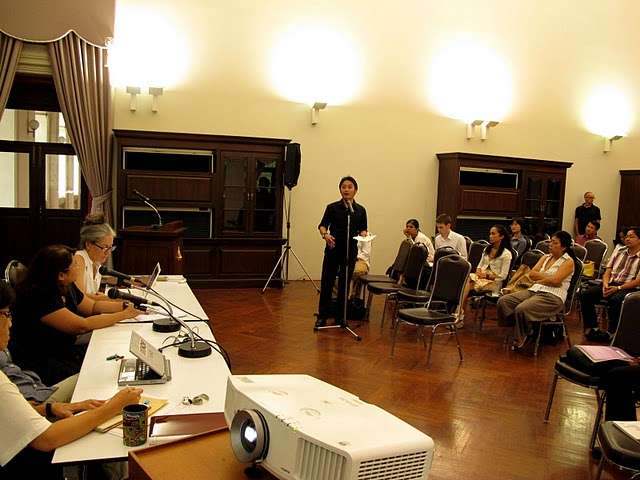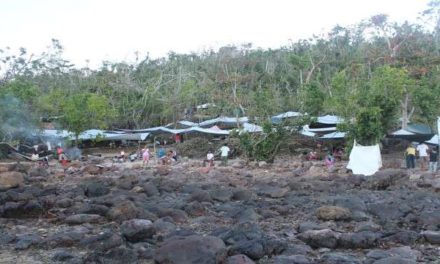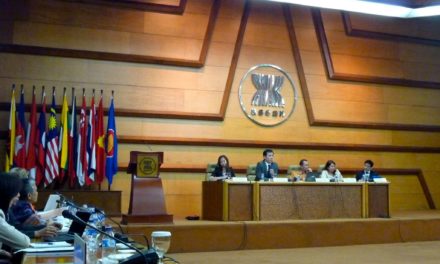Focus on the Global South together with the Foundation for Ecological Recovery/TERRA, World Rainforest Movement (WRM), International Rivers, Bank Information Centre and the Thai Working Group on Climate (TWGC), held a workshop titled Food, Livelihoods and Climate Change in the Mekong Region from August 9-11, 2010. The workshop was held at the Chulalongkorn University in Bangkok, and attended by over 50 representatives of local networks and civil society organizations from Myanmar, the Lao PDR, Thailand, Cambodia, Vietnam and China.
The need for the workshop emanated from the fact that the Mekong region is one of the fastest growing regions in the world, one of the richest in terms of biodiversity, watersheds, culture and natural resources, and is particularly vulnerable to climate change. A significant proportion of the region’s population is dependent on subsistence agriculture and artisanal fisheries for food and livelihood security, which are already being negatively affected by economic and environmental changes.
The region’s abundant rivers are quite literally the very basis of life in the region, but their regular flows are projected to change significantly because of the rapid melting of the Himalayan glaciers, and increasingly erratic rainfall bringing unusual floods and droughts to different areas. Agricultural seasons are likely to be affected by changes in temperature and rainfall, causing disruptions in flowering and harvesting times and disturbing the balances of pests and diseases. Equally vulnerable are communities in the heavily populated Mekong and Red River deltas, whose homes and coastal livelihoods are at risk from expected rising of sea levels. Natural resources that help to give life to the sea, such as reefs and coastal forests, are also under threat.
The workshop was intended to be an information sharing workshop and designed keeping in mind that many participants are not familiar with the ongoing inter-governmental, civil society and scientific/technical debates and discourses on climate change. The resource people for the workshop consisted of academics, analysts and researchers from across the world.
The workshop sought to assist participants to understand how climate change is related to economic development trends in the region, and how it will affect food, livelihood and environmental security. Particular attention was given to discussing what climate justice might mean for different communities and especially for women in these communities. In order to make the workshop informative and interactive, sessions were divided into lectures, issue-based group discussions and country reports from participants.
Discussions over three days revealed several common threads about the situation across the Mekong region. Peoples and communities face numerous common threats as a result of the resource-extractive model of economic development adopted by governments in the region. In addition, climate change is being experienced in every country through droughts, floods, irregular rainfall, changes in hydrology, pest outbreaks, and deterioration of terrestrial and marine resources. Peoples ways of life, farming, fishing, producing food and earning incomes are being changed because of both, the development model and climate change. With the exception of those living in Bangkok however, majority of the region’s peoples are not part of the high growth economies and high consumption lifestyles that contribute significantly to climate change. Governments have begun making plans and taking actions to address climate change, but these plans are not shared with their citizens, especially local communities in rural and urban areas. Public consultations on climate action plans are few and far between, and restricted to participation by select members of private enterprises, developmental organisations and civil society groups.
While governments claim to be formulating climate adaptation plans, they continue to follow development trajectories that undermine the capacities and resilience of local farming and fishing communities to withstand climate change related disasters. A favoured programme in the region appears to be REDD (Reducing Emissions from Deforestation and Forest Degradation) and all governments view REDD as a way to earn revenues from the climate crisis. Communities living in and around forests areas are being pushed to sign conservation agreements with governments without understanding the implications and consequences of these agreements.
Everywhere in the region, governments have sequestered common lands, forests and rivers as public property/assets, even as they hand them over to state and private companies for logging, plantations, extractive industry and hydropower development. At the same time, national policies and laws target local communities for cutting down trees, farming in so-called conservation areas, foraging and gathering in forests, using water bodies for their daily needs, etc.
The dual challenges presented by a destructive development model and climate change also present opportunities for community empowerment, public education, national policy reform and structural changes. People and governments of the Mekong region have to find suitable solutions to address these challenges that take into consideration the uniqueness of each country as well as common regional characteristics.
A resource document based on workshop proceedings is being prepared and will be ready by September end. Many of the presentations made at the workshop are available at this site.







![[IN PHOTOS] In Defense of Human Rights and Dignity Movement (iDEFEND) Mobilization on the fourth State of the Nation Address (SONA) of Ferdinand Marcos, Jr.](https://focusweb.org/wp-content/uploads/2025/07/1-150x150.jpg)

